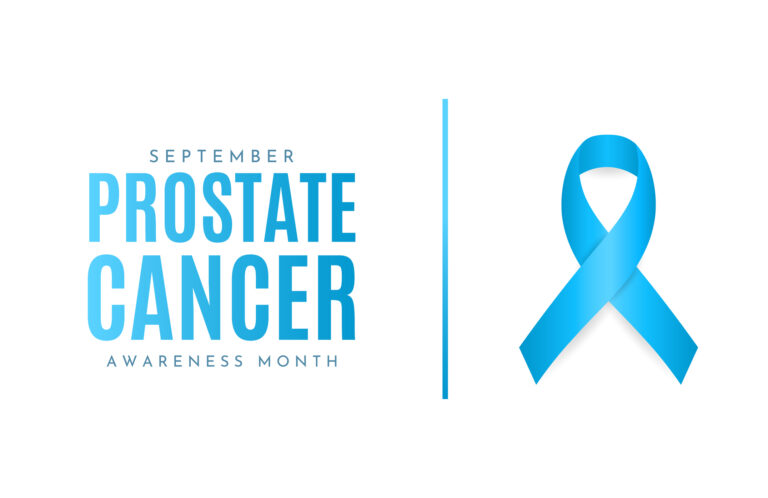Understanding Male Sexual Health: Myths and Facts

Exploring the Basics of Male Sexual Health
Male sexual health encompasses a variety of aspects, each playing a significant role in a man’s overall well-being. It is an amalgamation of physical, hormonal, mental, and emotional factors that determine a man’s capacity to enjoy a satisfying sexual life.
Primarily, male sexual health revolves around the proper function of male reproductive organs and the hormonal system, primarily testosterone, that influences sexual drive and function. Critical components include erectile function, sufficient sperm production for fertility, and the ability to experience satisfaction and pleasure during sexual activities. Physical health significantly impacts these areas; issues like cardiovascular disease, diabetes, or obesity can negatively affect them. Furthermore, psychological factors, like stress and anxiety, also play a colossal role, as they can lead to problems such as premature ejaculation and erectile dysfunction.
Moreover, male sexual health extends beyond these functions and into aspects of emotional health, interpersonal relationships, and quality of life. It’s a complex interplay of several factors, and understanding these complexities can help men take more effective charge of their sexual health and overall well-being. Thus, making well-informed decisions about lifestyle, diet, physical activity, mental health, regular health check-ups, and when necessary, seeking timely medical assistance.
Common Misconceptions Surrounding Male Sexuality

Despite living in an era of developed science and technology, it’s disheartening how misunderstood the area of male sexuality is. One of the most widespread misconceptions is the belief that a man’s sexual desire is perpetually high and uncomplicated, without the influence of emotional and psychological factors. However, studies indicate that men’s sexual drive is not a constant, but a dynamic entity. Various factors like age, stress, relationship status, and emotional well-being significantly influence this desire. Therefore, it’s not accurate to assume that men are always ready for sexual activity and that their drive is purely biologically driven. This narrative can lead to undue pressure and unrealistic expectations affecting men’s sexual health and self-esteem.
Another similarly misleading belief is that erectile dysfunction (ED) is purely a psychological issue, often attributed to anxiety or lack of attraction. While psychological components can indeed contribute to ED, it’s crucial to understand that this condition is often linked to other underlying health issues like cardiovascular disease, diabetes, hormone imbalances, or side effects from certain medications. The Mayo Clinic asserts that ED may be an early symptom of a more serious health problem. Consequently, beliefs that label ED solely as a mental health issue can delay much-needed medical intervention, highlighting the importance of open, informed conversations around the intricacies of male sexual health.
The Truth About Men’s Sexual Drive

Among the key aspects of male sexual health, understanding sexual drive or libido merits significant attention. Often popular culture propounds a notion that men always have an intense sexual drive, but this is an oversimplification. Human sexuality is highly individualistic and subject to various physiological, psychological, and socio-cultural influence. For instance, health factors such as diabetes, hormonal imbalances, heart health, or medications can affect libido. Similarly, stress, anxiety, depression, relationship dynamics can also influence a man’s sexual drive.
Demystifying male sexual drive further, it is essential to note that variations in libido are normal and not necessarily indicative of a problem. For instance, aging can be a contributing factor to reduced sexual drive in men. A study conducted by the Massachusetts Male Aging Study (MMAS) stated that around 52% of men aged between 40 and 70 experienced some form of erectile dysfunction (ED). Furthermore, diet, exercise, and lifestyle factors also play a critical role in a man’s sexual health. A balanced diet, regular exercise regimen, and abstention from harmful substances like excessive alcohol or illicit drugs are associated with better sexual drive. Hence, understanding these underlying factors can alleviate many misconceptions surrounding men’s sexual drive. However, in situations where a sudden decrease in sexual desire is noticed, medical consultation is advised to rule out any potential health concerns.
Demystifying Male Sexual Performance Issues
Sexual performance issues in men, often considered taboo topics, are more common than many realise. Affecting men of all age groups, these issues can include problems like premature ejaculation, delayed ejaculation, or erectile dysfunction among others. Despite being common, men often struggle to talk about their concerns due to societal expectations, fear of being judged, or simply due to misinformation. Understanding the various aspects of these issues can help in de-stigmatizing the topic, fostering healthy conversations, and encouraging men to seek necessary medical help.
Erectile dysfunction (ED), representing one of the most prevalent sexual performance issues, is estimated to affect about 30 million men in the United States. It is crucial to realize that ED is not a standalone ailment but often an early symptom of underlying medical conditions like heart disease, hypertension, or diabetes. Scientific research shows that difficulties in getting or maintaining an erection might appear 3-5 years before a heart condition is diagnosed. This evidence strengthens the need to seek prompt medical care besides breaking the shackles of embarrassment. A point often overlooked, however, is the integral role of mental health in male sexual performance. Stress, anxiety, depression, and other psychological conditions can be major detractors in an individual’s sexual performance. Knowledge about this intricate network of physical and mental health, as it relates to sexual performance, is vital for making informed decisions about men’s health care.
Erectile Dysfunction: Common Myths Vs Realities
Erectile dysfunction (ED), often interchangeably used with impotency, has been surrounded by a slew of misconceptions and myths that have distorted the reality of the condition. One of the most pervasive myths is that ED is the exclusive problem of old age. In reality, ED isn’t solely a result of aging. While it’s true that chances of experiencing ED increase with age, it’s not a guaranteed aspect of growing older. ED can and does occur in younger men too. In fact, according to a study by the Journal of Sexual Medicine, about 26% of men under the age of 40 experience ED to some degree. It should be noted that underlying health issues or lifestyle habits contribute greatly to the onset of erectile dysfunction irrespective of age.
Another common myth is that ED is just a mental problem, linking it solely to stress or anxiety. While these factors can exacerbate ED, the truth is that it’s often a symptom of underlying physical health problems. Some of the common conditions include heart disease, diabetes, hypertension, high cholesterol, and obesity. Therefore, it’s essential to understand that ED isn’t just about sexual health. It’s a complex condition that can be the first sign of more serious health problems. According to the American Heart Association, ED can be a warning sign of current or future heart problems – such caution is strong, considering around 70% of men diagnosed with ED were found to have a heart condition called left ventricular hypertrophy. Dismissing ED as purely a psychological issue can lead to missed opportunities for early medical intervention for these hidden health conditions.
The Link Between Lifestyle and Men’s Sexual Health
Lifestyle choices not only impact general health but can have far-reaching implications on men’s sexual health too. Essential factors include diet, exercise, alcohol and tobacco consumption, and stress management. Scientific studies have established a direct correlation between a poor diet and lack of physical activity with several sexual health issues in men including erectile dysfunction and reduced libido. Notably, a research conducted by the Journal of Sexual Medicine found that men who followed the Mediterranean diet, which emphasizes fruits, vegetables, whole grains, and olive oil, had fewer instances of erectile dysfunction compared to those who did not.

Smoking and excessive alcohol consumption have also been associated with sexual health problems in men. According to a study published in the American Journal of Epidemiology, long-term, heavy smoking can actually shrink the penis and impact its function severely. Similarly, the consumption of alcohol, although often associated with loosening inhibitions, can hamper sexual performance when indulged in excess. Chronic alcohol abuse can lead to liver damage, which in turn can result in hormonal imbalances that may dampen sexual desire or performance. Further, stress and mental health also play vital roles. A study in the Journal of Nervous and Mental Disease revealed that 20 to 30% of men with sexual dysfunction issues have significant levels of anxiety, depression or both.
Unraveling the Connection Between Mental Health and Male Sexuality
Often overlooked in discussions of men’s sexual health, mental wellness plays a significant role in the overall sexual function and satisfaction. Mental health challenges such as depression, anxiety, and chronic stress can have substantial impacts on a man’s sexual desire, arousal, and performance. Notably, studies show that approximately 20-30% of men with depression experience some form of sexual dysfunction. The relationship is in many ways bidirectional; while mental health problems can lead to sexual dysfunction, sexual issues can, in turn, increase psychological distress, creating a vicious cycle.
Changing this narrative involves promoting a more holistic view of sexual health, one that recognizes the integral role of mental well-being. A healthy mind supports a healthy body, and this is no less true in the realm of sexual health. In practice, this could mean incorporating psychological therapies or stress management techniques into treatment plans for men with sexual health problems. Understanding the undeniable link between mental health and male sexuality is an essential foundation towards effective treatments, patient education, and promoting overall wellness.
Fertility Concerns in Men: Myths and Truths

It is a common myth that fertility problems only pertain to women; the reality is, men contribute to about 50% of all fertility issues in couples. Contrary to popular belief, fertility is not always tied to a man’s virility or sexual prowess. Fertility in men relates to the health and quality of their sperm. Factors that could impact sperm health include age, lifestyle habits such as smoking and alcohol consumption, environmental factors, and underlying health conditions such as diabetes or issues related to sexual health like erectile dysfunction.
Several studies reveal that the quality of a male’s sperm tends to decline with age, specifically after 50 years, thereby slightly increasing the odds of infertility. Contrary to age-old misconceptions, wearing tight underwear does not cause infertility. Indeed, elevated temperatures can affect sperm production, but the effect of clothing is so minimal it’s practically negligible. On the other hand, severe mumps infection after puberty, certain genetic disorders, or a severe traumatic injury may lead to male fertility issues. It’s crucial to back such discussions with medical tests and expert diagnostic advice rather than relying on hearsay or commonly held misconceptions.
The Impact of Aging on Men’s Sexual Health
As men age, changes in sexual health are a regular part of the natural aging process. It’s important to understand that these alterations are not indicative of a loss in masculinity or vigor, but rather a shift in the way the body functions. Aging often impacts various aspects of male sexual health, ranging from libido to erectile function. According to the Massachusetts Male Aging Study, about 52% of men experience some form of erectile dysfunction, with it becoming more common as individuals age. It’s necessary to realize these alterations do not amount to a disease but are often the natural progression of life.
The role hormones play in male sexual health is considerably significant and any changes can be more visible with the progression of age. For instance, testosterone, the primary male sex hormone, tends to decrease as men age. This decline can lead to changes in sexual desire and response. Furthermore, certain chronic illnesses, such as heart disease and diabetes, become more prevalent with age and can affect sexual health as well. Research indicates men with such conditions are more likely to experience erectile dysfunction. The good news remains that most of these issues are manageable with today’s medical advancements and heightened understanding of male sexual health.
The Role of Hormones in Male Sexual Function
Hormones play a key role in governing the sexual functionality of men. These chemicals are the main driving force behind the intricate workings of the male sex drive. Testosterone, for instance, is one of the most vital hormones in a male body which stimulates sex drive, bone mass, fat distribution, muscle size and strength, and sperm production. A decrease or imbalance in the testosterone level can reflect in several forms, from a diminished sex drive to erectile dysfunction. In addition, the pituitary hormones such as luteinizing hormone and follicle-stimulating hormone, while not direct participants in the sexual act itself, are vital in the testosterone production process. Thus, maintaining hormonal health is essential to lead a fulfilling sexual life.
However, sometimes, a myriad of factors such as aging, disease, lifestyle, or mental health may contribute to hormonal imbalances. Such imbalances can lead to various sexual health issues including lowered libido, problems with erections, and fertility struggles. In cases of erectile dysfunction (ED), it’s the imbalance or insufficiency of the hormone called nitric oxide, which relaxes blood vessels to facilitate successful erection, that takes the blame. A thyroid hormone imbalance could result in fatigue, frequently causing a decline in sexual desire. It’s important to understand that these conditions are not anomalies and can be effectively addressed using appropriate therapies, lifestyle changes, and medical intervention. Misconceptions and stigma surrounding hormonal imbalance can act as barriers to seeking help, but the reality is that the pathway to improved sexual function often lies in understanding and rectifying these hormonal imbalances.
Medical Conditions and Their Influence on Male Sexuality
Various medical conditions can significantly impact male sexual health and performance. Disorders such as heart disease, diabetes, neurological disorders, hormonal imbalances, and chronic illnesses like kidney or liver disease often result in decreased libido, erectile dysfunction, or other sexual issues in men. For instance, heart disease can decrease blood flow to the penis, which can lead to erectile dysfunction. Similarly, diabetes can often result in nerve damage, causing difficulties in achieving or maintaining an erection.
On the other hand, certain psychological conditions such as depression, anxiety, and stress can also affect male sexual health. These can lead to sexual dysfunction either directly, through the effects on mood, energy levels, and hormone imbalance, or indirectly, by affecting one’s self-esteem or leading to unhealthy lifestyle choices that impair sexual function, such as alcohol and drug misuse. Therefore, it is crucial to consider both physical and mental health when addressing men’s sexual health issues. Regular screenings and health check-ups can help in early diagnosis and treatment, leading to improved health outcomes.
Misunderstandings About Male Sexual Enhancement Products

Male sexual enhancement products often elicit misconceptions that can lead to undue stress and unrealistic expectations. A common belief circulating among many individuals is that these products, particularly pills and supplements, can significantly increase the size of the male sexual organ. While certain products may indeed cause temporary engorgement due to enhanced blood flow, no scientifically proven method exists that can provide a permanent increase in size. This misbelief can create body image concerns and lower self-esteem in men who might feel pressure to meet an unrealistic standard.
Another widespread misunderstanding is the presupposition that these products can instantaneously resolve all underlying sexual health problems such as erectile dysfunction, low libido, or premature ejaculation. While some products potentially aid in mitigating certain issues, they are not a universal resolution for all sexual health concerns. In fact, many underlying sexual health problems may tie to psychological or systemic health issues that cannot be addressed simply by the use of enhancement products. As a consequence, men who rely solely on these products without seeking professional medical advice may unintentionally overlook serious health conditions.
Dispelling Myths Around Men’s Sexual Health and Diet
One of the most widespread myths surrounding men’s sexual health is the belief that a specific diet can drastically enhance or hinder sexual performance. Scientific research, however, suggests that while diet plays a role in overall health and thereby can influence sexual well-being, it does not directly impact sexual prowess the way many people presume. A healthy, balanced diet supports cardiovascular health, which can, in turn, enhance blood flow, including to the sexual organs. Yet, it’s crucial to understand that consuming certain ‘aphrodisiac’ foods or supplements, like oysters or ginseng, will not instantaneously unlock unprecedented levels of libido.
Equally, consuming a botched diet does not lead to sexual dysfunction unless it contributes to a severe and prolonged deficiency, like malnutrition, or if it contributes to the development of chronic diseases, such as obesity or diabetes. Misleading advertisements and societal beliefs might tempt many men into believing that consuming specific foods or avoiding others can provide a quick fix to sexual performance issues. However, no single food item has the final say in shaping one’s libido or sexual performance. Rather than seeking miracles in certain foods or supplements, it’s more sensible and effective to maintain a balanced diet, along with regular exercise, for a better overall state of health. Given that a healthy body invariably lends to a healthy sexual life,contentment comes from a sum of considerations, diet only being one. They all have a combined result rather than an individual.
The Relationship Between Exercise and Men’s Sexual Well-Being
A strong correlation exists between regular exercise and enhanced male sexual health. This connection can be attributed to several physical and psychological factors that contribute to improved sexual wellness. Regular physical activity can boost blood circulation throughout the body, including the pelvic area, which plays a crucial role in sexual function. The release of endorphins during exercise contributes to a heightened sense of well-being, reduced stress levels, and improved mood, factors that can significantly influence sexual desire and performance.
Moreover, exercise has been found to have a positive impact on men’s sexual health by helping maintain healthy testosterone levels. As men age, testosterone levels naturally decline, which can affect sexual performance. A regular exercise regimen can aid in sustaining testosterone levels, indirectly boosting sexual health. Furthermore, men who exercise regularly tend to have a healthier body weight, reduced risk of cardiovascular diseases, and improved mental health – all of which contribute to better sexual health. From cardio and resistance training to yoga and Pilates, various forms of exercise can prove beneficial in promoting men’s sexual well-being.
Male Sexual Health: The Importance of Regular Check-ups and Screenings
A cornerstone of maintaining men’s sexual health is regular medical check-ups and screenings. Just as you’d regularly take your car to the mechanic, the body too needs its routine inspection. Regular visits to the healthcare provider for a comprehensive check-up can facilitate the early detection of potential health issues that could affect sexual function, like cardiovascular diseases, high cholesterol, diabetes, or hormonal imbalances. Screenings can include blood pressure monitoring, blood tests, prostate exams; all of which are critical to nip the issues in the bud that may be quietly affecting sexual health.
In addition to physical health, these check-ups also form an ideal opportunity to address mental health issues. Stress, anxiety and depression are also significant contributors to sexual health problems like erectile dysfunction or loss of sexual desire. Engaging in a candid conversation with your healthcare provider about these concerns can lead to more effective treatments and better sexual health outcomes. Despite the fact that males are well-known for avoiding medical visits, the benefits of regular screenings cannot be understated for maintaining optimal sexual health and overall well-being. It’s essential to underscore the reality that there is no shame in seeking professional help for these concerns. It is the first step towards a healthier, fulfilling life.
Why is regular check-up and screening important for male sexual health?
Regular medical check-ups and screenings are crucial for early detection of potential sexual health issues in males. Early treatment can help prevent complications and improve the overall sexual well-being.
How does lifestyle affect men’s sexual health?
Lifestyle choices such as diet, exercise, smoking, and alcohol consumption can significantly impact men’s sexual health. A healthy lifestyle can promote better sexual function, while unhealthy habits can contribute to problems like erectile dysfunction.
What is the connection between mental health and male sexuality?
Mental health issues such as stress, anxiety, and depression can affect a man’s sexual drive and performance. It is important to manage mental health to maintain optimal sexual health.
How does aging affect men’s sexual health?
As men age, they may experience changes in sexual desire, performance, and satisfaction. This can be due to hormonal changes, medical conditions, or other age-related factors.
What are some myths related to male sexual performance?
There are several myths around male sexual performance such as the idea that men are always ready for sex, that erectile dysfunction is a normal part of aging, or that size determines satisfaction. These misconceptions can lead to unrealistic expectations and stress.
How do hormones influence male sexual function?
Hormones, particularly testosterone, play a key role in male sexual function. They regulate libido, erectile function, and sperm production.
Are there any specific medical conditions that influence male sexuality?
Yes, several medical conditions like heart disease, diabetes, hypertension, and neurological disorders can affect male sexual function. Regular health screenings can help identify these conditions early.
What are common misunderstandings about male sexual enhancement products?
A common misunderstanding is that all male sexual enhancement products are safe and effective. However, not all products are regulated or scientifically proven, and some can have side effects.
How does diet affect men’s sexual health?
A healthy diet provides the nutrients needed for optimal sexual function. On the other hand, a poor diet can lead to health issues like obesity and heart disease, which can affect sexual health.
How does exercise contribute to men’s sexual well-being?
Regular exercise can improve blood flow, boost testosterone levels, and improve mood, all of which can enhance sexual health and performance.






